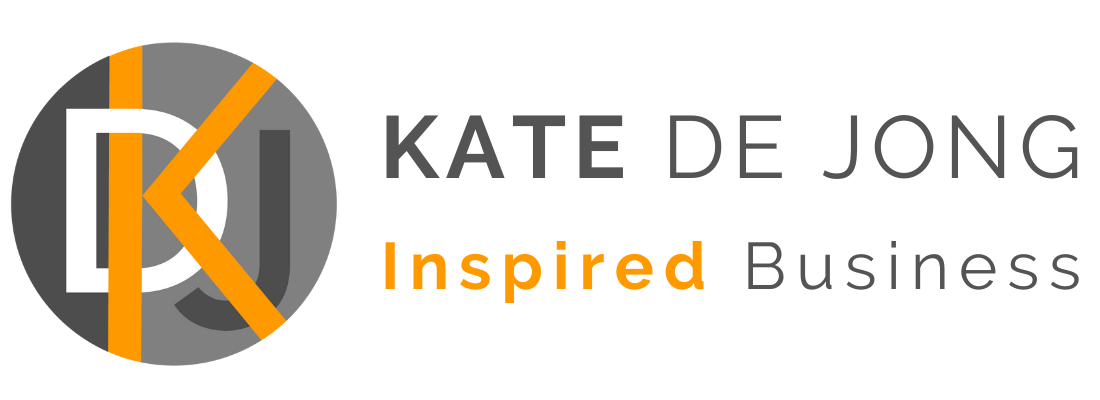
Definition: Entrepreneur
A person who sets up a business or businesses, taking on financial risk in the hope of profit.
If you’re a business owner, or working for yourself, then you’ve ventured into the world of entrepreneurship.
Traditionally, there have been some key differences between ‘entrepreneurs’ and ‘business owners’.
As Melanie Spring writes in her great article Are You a Small-Business Owner or an Entrepreneur? The Difference is Important, these are some of the key differences:
- Small business owners take relatively small financial risks. The results may not be huge, but it keeps them moving forward. Entrepreneurs take larger risks, knowing that if they put in their full effort, there will be a good ROI (return on investment).
- Small business owners tend to think local, while entrepreneurs think big and global.
- Entrepreneurs put their focus on growth and scaling and their core mission is to develop a business that they can on-sell it eventually to make a significant profit.
However, the definition of entrepreneurship is subtly changing.
Bruce Bachenheimer, a clinical professor of management and executive director of the Entrepreneurship Lab at Pace University says:
[mashtweet tweet=”“Entrepreneurship is much broader than the creation of a new business venture. At its core, it is a mindset — a way of thinking and acting. It is about imagining new ways to solve problems and create value.” – Bruce Bachenheimer” text=”” username=”katiedejong3rd”]
And given the changing nature of our workforce and the emergence of the new Purpose Economy, there are ever-increasing opportunities to solve new problems and create value, and people are responding to these market gaps.

Hence the rising number of entrepreneurs worldwide.
Linda Rottenberg, entrepreneur extraordinaire, founder of Endeavor and author of Crazy is a Compliment: The Power of Zigging When Everyone Else Zags says:
“Today entrepreneurship doesn’t just mean starting a tech company. It means undertaking any bold venture – from improving your neighbourhood to selling crafts out of your basement; from modernising your family business to proposing a new initiative in your corporation.
The techniques involved in sharpening your idea, facing down critics, recruiting boosters, and handling setbacks apply in almost every realm of work.”
Rottenberg describes the increasing trend of entrepreneurs worldwide like this:
[mashtweet tweet=”“In the world today, there’s an unstoppable, unwavering trend toward individuals who seek to improve their own lives and, in the process, improve the world around them. They’re entrepreneurs.”” text=”” username=”katiedejong3rd”]
Research in Australia, my homeland, shows that “small and micro business is Australia’s fastest growing employment sector. Aussie start-up culture is burning brighter than ever before as Baby Boomers and Gen Y lead a movement to ditch the corporate ladder in favour of becoming their own boss.” [1].
Research in the USA shows that people are increasingly choosing entrepreneurship too. A study by Intelligent Office revealed that nearly 65 percent of workers would rather be an entrepreneur or independent employee than work in an office.
Rottenberg says:
“If some moments have been ripe for diplomats, financiers, soldiers, or politicians, today is ripe for entrepreneurs.”
The reason for this, she says, is this:
“The reasons behind the shift are complex, but they come down to one simple reality: We live in a time of uncertainty. Our economies, our companies, our jobs, are no longer stable and secure. Change is the only constant. To survive, we all need the skills required to continually reinvent ourselves.”
[mashtweet tweet=”Everyone needs to take some risk or risk being left behind.” text=”” username=”katiedejong3rd”]

As happens with the growth of any field or model, the entrepreneurial field is diversifying and spreading in its form and impact.
Once reserved as a term largely for the start-up industry, it now infiltrates just about any sector you can think of.
Linda Rottenberg has spent her entire career finding, coaching, and financially supporting fledgling entrepreneurs with big ideas through her organisation Endeavor. In her many years of experience of working with thousands of entrepreneurs and speaking on countless panels on the topic, she defines four different types of entrepreneurs.
I found her definitions fascinating and insightful.
Here are the different types and their characteristics. I’m most definitely a butterfly. Which one are you? (All definitions below are taken from Rottenberg’s book Crazy is a Compliment.)
The Four Different Species of Entrepreneurs
 1. Gazelles
1. Gazelles
Gazelles, Rottenberg explains, are the classic entrepreneurs of myth and reality:
“Someone who starts a new business venture and aims for it to explode into a white-hot phenomenon”.
Examples are Home Depot, Facebook, Jenny Craig, and Instagram.
High growth is the goal.
The term ‘gazelle’ was coined by economist David Birch in 1994 to describe high-growth businesses whose sales double every four years. Though only a minuscule 2—4 % of companies fit this model in the USA, this group accounts for nearly all job creation in the private sector.
When you hear politicians say “Small businesses really create most of the new jobs”, they’re talking about gazelles, Rottenberg says.
In her experience, while wildly brilliant and visionary, gazelles tend to make the same mistakes over and over: They expand too quickly, they lose focus, they tangle with their partners and they can’t give up control. But when they have a supportive team around them who can help them balance out these aspects, they’re unstoppable.
![]()
 2. Skunks
2. Skunks
The term ‘skunk’ was adapted by Rottenberg from the Lockheed Corporation, which during World War II set up a secret division to build fighter jets. It was called Skunk Works.
Skunks are:
“Entrepreneurs operating within large corporations [who] go out of their way to stink up the joint.”
They’re sometimes also referred to as ‘intrapeneur’, an employee operating within a company who takes responsibility for “turning an idea into a profitable finished product through assertive risk-taking and innovation.”
They’re often people who have become fed up with the limitations of conventional company practice and develop a better way to do it, or see something that is desperately needed and go against all bureaucracy, traditions, and resistance to get it done.
Given the rapid pace of change in the world and the need to adapt and innovate, corporations are now urgently requesting and encouraging their employees to be more independent and creative. The corporate world knows it’s essential to their survival.
 3. Dolphins
3. Dolphins
These are people who dedicate their skills and services to helping the social sector become more entrepreneurial. These days they are referred to as ‘social entrepreneurs’.
Rottenberg explains: “Dolphins are contrarians in the non-profit or public sector who are willing to buck the conventions of their professions and agitate for real change.
“Why dolphins? Because they’re smart and social (they live in cooperative pods) and are one of the few animals shown to be altruistic toward others. But they’re not pushovers: Harm a dolphin’s pod, and watch out!”
Rottenberg continues: “Today even causes for which there are no compelling private-sector solutions are ripe for an entrepreneurial shake-up. It’s dolphins making the waves.”
 4. Butterflies
4. Butterflies
This may be the fastest-growing group of all. These are small-scale or lifestyle entrepreneurs. First among these are sole proprietors – plumbers, yoga instructors, freelance writers, organic farmers, artists etc.
The U.S. Census Bureau estimates that a majority of U.S. businesses have no paid employees. Forty percent of American adults have now spent part of their careers working on their own, and 24 million more are expected to be self-employed by 2018.
Globally the number of independent contractors will reach 1.3. billion by 2020. Rottenberg explains:
“These fields are booming because they’re open to anyone: Moms, dads, grannies, twenty-somethings, even teens starting microventures in their basements, cars or bathrooms. As Jay-Z put it ‘I’m not a businessman; I’m a business, man.’”
While some of these entrepreneurs aim to be fast-growing gazelles, many are content to stay small and local. Rottenberg’s reasons for calling this group of entrepreneurs ‘butterflies’ is beautiful:
“Butterflies are incredibly varied (there are at least 17,500 different types of butterfly) and [are] driven by freedom and individualism. In both Eastern and Western cultures, butterflies have long symbolised the soul, especially one reborn after a period of cocooning. Beyond personal transformation, butterflies are vital to their habitat and an indicator of its overall well-being. More butterflies equal a healthier ecosystem.”
At first glance, this group may not appear to reflect the ground-breaking level of skills that entrepreneurs usually harbour. Linda says:
“Do you really need to be disruptive when you’re selling homemade cheese at the farmer’s market? The answer: You do, especially because your competitor probably has an in at Whole Foods, now accepts credit card payments with a Square reader and has just launched a vibrant Web business.”
Besides, she says, “butterflies are uniquely suited to this age of disruption. In chaos theory, ‘butterfly effect’ is the term given to the idea that change can come from anywhere. The weather in Central Park can be affected by a butterfly flapping its wings in South America […] Don’t underestimate the tenacity of a butterfly. […] They aren’t waiting for changes to happen to them; they’re making changes happen every day.”
So clearly entrepreneurship is no longer restricted to a minority group of high-growth tech start-ups but is infiltrating increasingly into every corner of life including the public sector, the corporate sector, and the small business/lifestyle sector.
I found it humbling and validating to know that butterflies like me are on the rise and that “more butterflies equal a healthier ecosystem.” At the end of the day, a healthy ecosystem is one in which all species are thriving and growing. And in the case of entrepreneurship, this definitely seems to be one growing, large, and thriving global ecosystem.
In service to your success,
Katie De Jong, Ph.D
Inspired Business
Business & Marketing Strategist
[email protected]
www.katedejong.com
[1] https://www.nbnco.com.au/blog/business/the-rise-of-the-aussie-entrepreneur.html
[2] https://www.entrepreneur.com/article/227776
[3] https://www.entrepreneur.com/article/238502
[4] https://www.preservearticles.com/201101143321/essential-qualities-of-an-entrepreneur.html


 1. Gazelles
1. Gazelles 2. Skunks
2. Skunks 3. Dolphins
3. Dolphins 4. Butterflies
4. Butterflies Kate De Jong is a business and marketing strategist for start-ups and small business owners who want to grow their business with ease. Kate is a bestselling author and a Chief Executive Women award-winner for women in leadership. Formerly a consulting engineer for more than fifteen years, Kate left her engineering career in 2012 to pursue her passion and zone of genius—entrepreneurship and marketing — and has never looked back!
Kate De Jong is a business and marketing strategist for start-ups and small business owners who want to grow their business with ease. Kate is a bestselling author and a Chief Executive Women award-winner for women in leadership. Formerly a consulting engineer for more than fifteen years, Kate left her engineering career in 2012 to pursue her passion and zone of genius—entrepreneurship and marketing — and has never looked back!